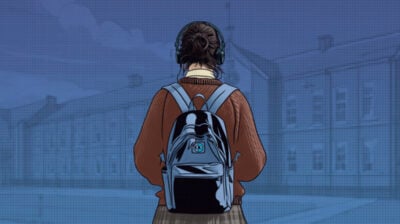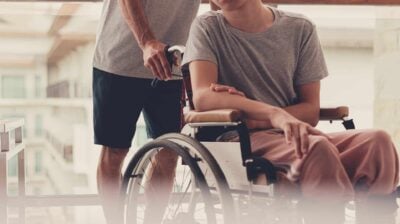Organ Donation: A conversation that could save lives
Your decision can make a difference
Written by Eleanor Walsh
Voices - Advice
Young people share advice based on their experiences.

The topic of organ donation can seem alien, especially to young people. Unless you or someone you know has been affected by it, you may have never considered it or know how it works.
There are two kinds of organ donation, live organ donation and posthumous organ donation. Live organ donation involves the transplantation of the kidneys. Other organs, such as the heart, lungs, liver, can only be donated posthumously as they are essential for life.
Live organ donations of the kidneys are normally undertaken by close family, spouses or friends. Donors of kidneys must be over the age of 18 and give full consent, while recipients must be deemed fit for surgery before transplantation can take place.
Posthumous organ donation is the donation of organs such as the pancreas, lungs and heart by a donor who is deemed “brain stem dead” and has no chance of recovery. The conversation of donation under these circumstances is between medical staff and the family of the deceased. If a family agree to donation, written consent is sought from the patient’s next of kin and only organs consented for removal can be transplanted.
As young people, we can often feel invincible and rarely think about the topic of illness and death until we are confronted by it. This confrontation can happen due to personal illness and tragedy or through the experiences of someone known to you. My first experience of discussing organ donation happened when I was 16 years old. A friend of mine, who had lived with cystic fibrosis, passed away. As I was young and naïve to the realities of living with Cystic Fibrosis, I found her death very hard to process and was determined to understand more about the condition.
In my attempts to learn more about cystic fibrosis, I came across the subject of organ donation. The topics are regularly discussed in tandem as some cystic fibrosis sufferers’ undergo organ transplantation. The more I learnt and read about peoples’ experiences of organ donation, I was convinced it was a conversation worth having on a widespread basis not only amongst those affected by it.
Organ donation can be a difficult topic to discuss with your family, especially as a young person. It is not something your siblings and parents/guardians might enjoy discussing with you but if you want to be an organ donor in the case of your death, it is essential that they know your wishes. You may carry an organ donor card, available online, but written consent from your next of kin will still be sought if you die.
Why should you consider being an organ donor? Even though Ireland has one of the highest donation rates in the world, there has been an increase in conditions, such as renal failure, that require organs in the past 10 years according to a HSE report. There are approximately 550 people on the transplant waiting list this year. There is still a huge need for more people to sign up and make their families, partners and next of kin aware of their decision to be donors, should their death occur.
It’s not a conversation I ever saw myself having with my parents, let alone as a teenager, as death seemed so far away, but it made complete sense to me. If my life was to end unexpectedly and I was left in a position where I was a viable candidate for organ donation, would my parents be able to make such a decision without my previous expressed desire? I believe it would be difficult to make a decision on my behalf without me. By having this conversation, as serious as it was, I felt secure in the knowledge that my wishes would be respected should I die.
In 2013, 86 deceased donors saved the lives of 245 people. 245 people and their families have a second chance at life thanks to the selfless and loving actions of 86 people and their families. Don’t put off discussing organ donation just because it is irrelevant to your circumstances today, you could save a life in the future by having this conversation now.
Learn more about how to become an organ donor.






